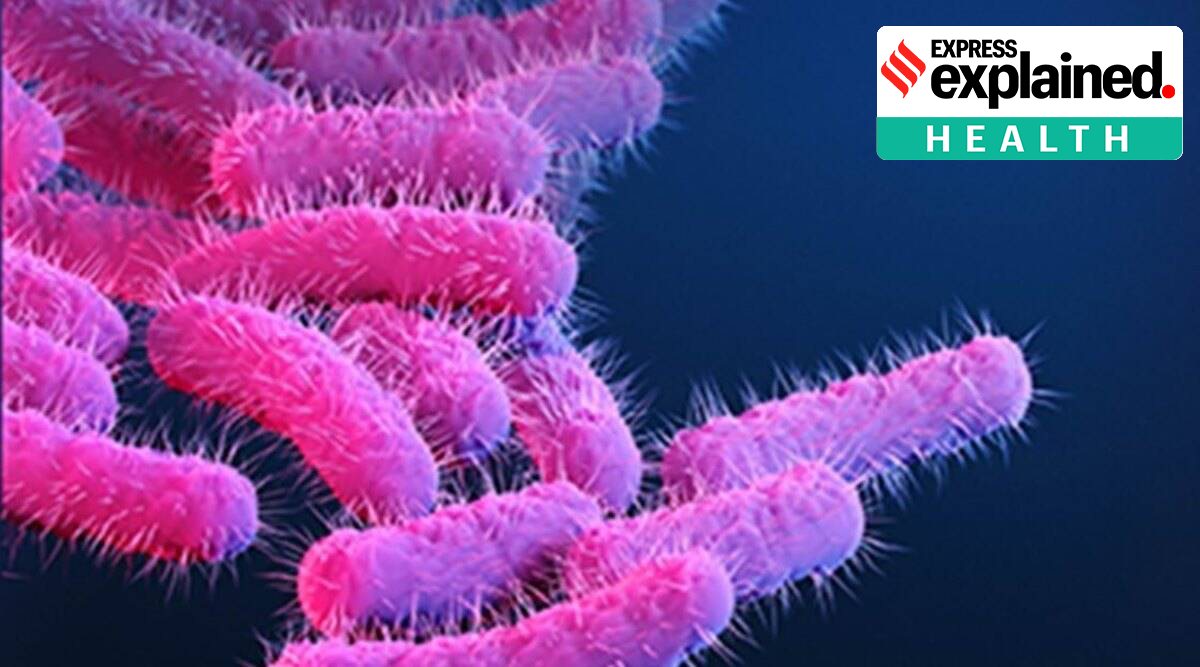
Updated: December 21, 2020 6:26:19 pm
 Shigella infection is spread by contaminated food and water. (Image via ieMalayalam.com)
Shigella infection is spread by contaminated food and water. (Image via ieMalayalam.com)
Health officials in Kerala’s Kozhikode district called emergency meetings and initiated preventive measures last week after six cases of shigella infection and nearly two dozen suspected cases were detected within the boundaries of urban corporations.
What is shigella infection?
Shigellosis, or shigella infection, is a contagious intestinal infection caused by a genus of bacteria known as shigella. The bacterium is one of the main pathogens responsible for causing diarrhea, ranging from moderate to severe symptoms, especially in children in the African and South Asian regions.
The bacteria, after entering the body by ingestion, attack the epithelial lining of the colon causing inflammation of the cells and subsequently the destruction of cells in severe cases. It only takes a small amount of shigella bacteria to enter a person’s system and make them sick.


What are the common symptoms?
People with shigellosis can begin to experience symptoms within a day or two after germs enter the body. Common symptoms are diarrhea (often painful and bloody), stomach pain, fever, nausea, and vomiting. There have also been cases where people do not experience any signs of bacterial infection.
How does it spread?
The infection is known to spread from person to person when the bacteria are accidentally ingested. This can happen in child care settings if a person does not wash their hands after cleaning the baby’s diaper and then eats the food with the same hands. Transmission through contaminated food and water is the most common form of transmission worldwide.
Is shigella serious in most cases?
No. In most cases, the patient may experience diarrhea that lasts a couple of days and then the symptoms gradually subside. If the diarrhea persists for more than a week and if the patient suffers from fever and stomach pain, it is advisable to consult a doctor. Complications do not usually occur in most cases.
In certain cases, however, if not diagnosed even after a week of severe symptoms, shigella can cause complications such as seizures, rectal prolapse, and reactive arthritis, which can even lead to death.
How to prevent shigella infection?
According to the CDC, it is important to wash your hands with soap, especially after dealing with a child’s diaper and before preparing / eating food. When swimming in pools and lakes, it is advisable not to swallow water. You can avoid eating contaminated food, especially from the street in unsanitary conditions. It is advised to drink boiled water.
How serious is the spread of shigella in Kozhikode?
Health department officials said the spread of the shigella infection in Kozhikode has been controlled and there is no reason for concern. The first suspected case of infection was that of an 11-year-old boy who was admitted to Kozhikode Medical College Hospital after severe diarrhea. His condition quickly worsened and he died last week.
Many people who attended the boy’s funeral and had consumed some type of food or water from his home began to report similar symptoms. When their samples were analyzed in the laboratory, shigella was confirmed in six cases. At least 20 other people were suspected of having contracted the infection.
Dr. Jayasree, DMO, told The Indian Express that except for four adults, most of the cases were found among children. They were immediately admitted to local hospitals for treatment and later released.
Preliminary reports indicate that contaminated water, served at the boy’s funeral, could have spread the infection. Samples from wells in the area were sent for analysis. Most of the cases were confined to the Kottamparambu district within the boundaries of the Kozhikode Corporation.
.